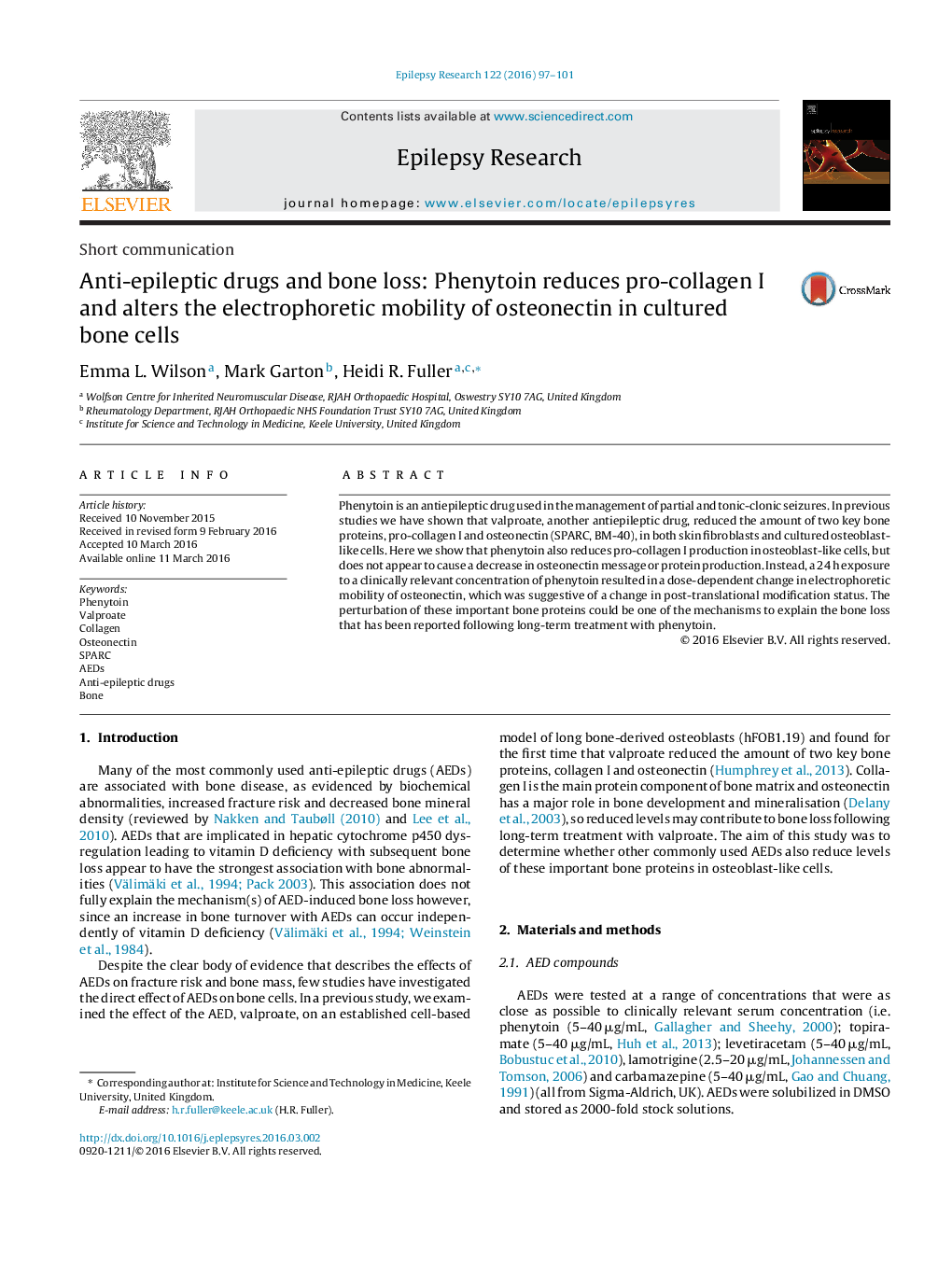| کد مقاله | کد نشریه | سال انتشار | مقاله انگلیسی | نسخه تمام متن |
|---|---|---|---|---|
| 3051964 | 1579901 | 2016 | 5 صفحه PDF | دانلود رایگان |
• Phenytoin, like valproate, reduces collagen I protein production by osteoblast-like cells.
• Unlike valproate, phenytoin does not reduce osteonectin protein production but instead, alters the electrophoretic mobility of osteonectin.
• Perturbation of these important bone proteins is a possible mechanism to explain bone loss following long-term treatment with phenytoin.
Phenytoin is an antiepileptic drug used in the management of partial and tonic-clonic seizures. In previous studies we have shown that valproate, another antiepileptic drug, reduced the amount of two key bone proteins, pro-collagen I and osteonectin (SPARC, BM-40), in both skin fibroblasts and cultured osteoblast-like cells. Here we show that phenytoin also reduces pro-collagen I production in osteoblast-like cells, but does not appear to cause a decrease in osteonectin message or protein production. Instead, a 24 h exposure to a clinically relevant concentration of phenytoin resulted in a dose-dependent change in electrophoretic mobility of osteonectin, which was suggestive of a change in post-translational modification status. The perturbation of these important bone proteins could be one of the mechanisms to explain the bone loss that has been reported following long-term treatment with phenytoin.
Journal: Epilepsy Research - Volume 122, May 2016, Pages 97–101
